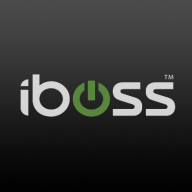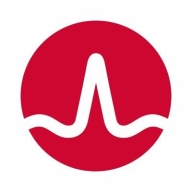


Fortinet FortiGate and Symantec Proxy are contenders in the network security space, with Fortinet FortiGate having an edge due to its affordability and ease of deployment while Symantec Proxy shines with its web security features.
Features: Fortinet FortiGate provides advanced threat protection, SD-WAN capabilities, and seamless integration with security management systems. Symantec Proxy is noted for its strong web filtering, malware protection, and data loss prevention functionalities.
Room for Improvement: Fortinet FortiGate could strengthen its specialization in web security features and data protection. Symantec Proxy might benefit from reducing its complexity in deployment and lowering its setup costs.
Ease of Deployment and Customer Service: Fortinet FortiGate is known for its straightforward deployment and proactive customer support, enhancing user satisfaction. Symantec Proxy, while offering solid technical support, can pose challenges in deployment, which could deter some users.
Pricing and ROI: Fortinet FortiGate is recognized for its cost-effectiveness with a strong upfront investment and ongoing ROI. In contrast, Symantec Proxy's higher initial costs are offset by its long-term value through comprehensive web security features.
| Product | Market Share (%) |
|---|---|
| Fortinet FortiGate | 6.9% |
| iboss | 2.5% |
| Symantec Proxy | 1.9% |
| Other | 88.7% |


| Company Size | Count |
|---|---|
| Small Business | 6 |
| Midsize Enterprise | 6 |
| Large Enterprise | 6 |
| Company Size | Count |
|---|---|
| Small Business | 359 |
| Midsize Enterprise | 133 |
| Large Enterprise | 190 |
| Company Size | Count |
|---|---|
| Small Business | 6 |
| Midsize Enterprise | 4 |
| Large Enterprise | 12 |
Iboss offers a comprehensive cloud-based security platform valued for its scalability and autonomous features, ensuring robust security with easy deployment and management capabilities.
Renowned for its robust security architecture, Iboss integrates seamlessly within diverse networks, delivering efficient granular filtering and advanced content categorization. Its single pane of glass console provides ease of management, allowing rapid scalability suitable for rapidly deploying environments. Operates in BYOD setups due to inline filtering without device installation. Integration with cloud-based applications enhances user control, and features like SASE, SSL inspection, and ChatGPT risk protection stand as highlights. Despite its strengths, users have pointed out areas for enhancement like direct navigation in reports, SSL decryption, and better cloud integration while having room to improve data loss prevention.
What are the most important features of Iboss?The usage of Iboss spans educational institutions, specifically K-12, to enforce internet policies, protect data, and support remote work environments. It provides web filtering and security frameworks to ensure safe browsing. Its platform-as-a-service model offers flexibility for both cloud-based and on-premises requirements, integrating seamlessly to deliver enhanced security features suitable for various deployment needs including zero trust, CASB, and network security for work-from-home setups.
Fortinet FortiGate is a versatile network security tool offering features like VPN, firewall, web filtering, intrusion prevention, and scalability. It is known for its performance and integration with other Fortinet products, making it a preferred choice for robust cybersecurity.
Fortinet FortiGate stands out as a comprehensive cybersecurity solution with strong performance and ease of configuration. It delivers unified threat management, integrating features such as dynamic routing, SD-WAN support, and centralized management. Despite its strengths, improvements in the web interface's stability, pricing structures, and reporting capabilities are needed. Users seek better integration with third-party tools and automation advancements to enhance the experience further. These enhancements, alongside improvements in bandwidth management and the reduction of licensing costs, are points of interest for users looking to capitalize on FortiGate's extensive capabilities.
What are Fortinet FortiGate's key features?Fortinet FortiGate is widely implemented across industries as a primary firewall system for securing internet gateways and safeguarding data centers. It supports businesses in achieving SD-WAN integration and enhances cybersecurity by providing essential features like antivirus, web filtering, and application control. Enterprises utilize FortiGate for securing remote connections and ensuring compliance with security standards, making it adaptable for different network sizes and industries.
Symantec Proxy is designed to provide web security, web access control, and secure web gateway functionalities for organizations. It helps protect against web-based threats, enforce web usage policies, and provide secure access to internet resources.
Symantec Proxy Benefits:
Symantec Proxy Features:
Reviews from Real Users
Below are some reviews and helpful feedback written by Symantec Proxy users.
PeerSpot user, Consultant at a financial services firm, says that Symantec Proxy "...enables us to manage bandwidth for users based on their privilege levels. For example, if a user wants to use a certain application or resource, we can provide access based on their privileges."
PeerSpot user, General Manager & founder at a engineering company, writes that Symantec Proxy has "A complex deployment, no proper user reporting, and a proxy component that works."
Muhammad Salahuddin, Unit Head - Network and Security Solutions at FPM Solutions, states that Symantec Proxy has "Good URL filtering but is expensive and doesn't have good technical support services."
We monitor all Secure Web Gateways (SWG) reviews to prevent fraudulent reviews and keep review quality high. We do not post reviews by company employees or direct competitors. We validate each review for authenticity via cross-reference with LinkedIn, and personal follow-up with the reviewer when necessary.